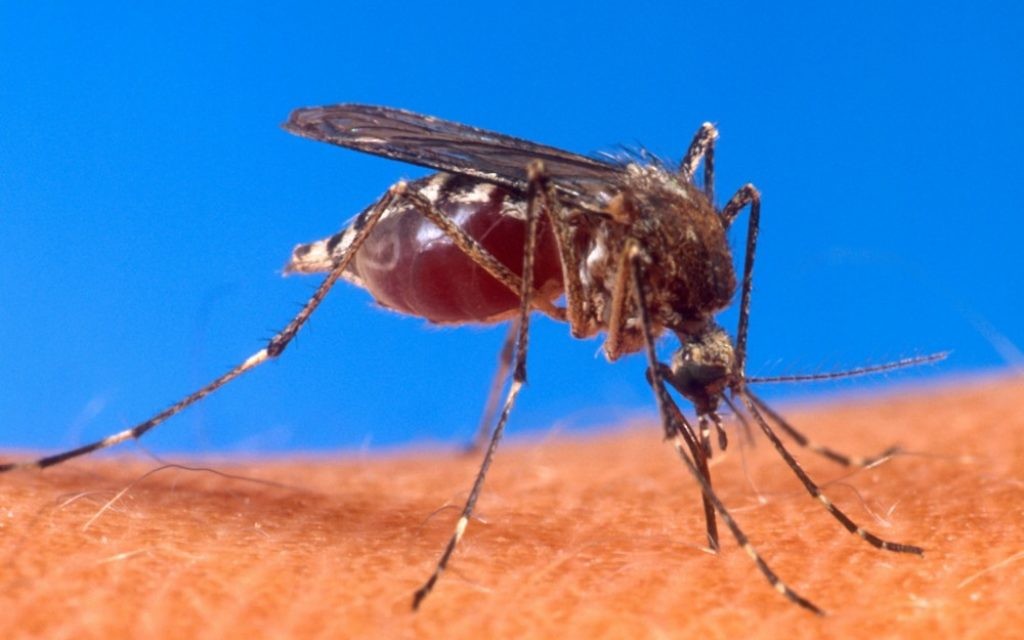Emory’s Uriel Kitron to Seek Zika’s Secrets
The mosquito-borne Zika virus constitutes a global public health emergency, the World Health Organization declared Monday, Feb. 1, and an Emory University professor is going to fight it on the front lines.
“A coordinated international response is needed to improve surveillance, the detection of infections, congenital malformations, and neurological complications, to intensify the control of mosquito populations, and to expedite the development of diagnostic tests and vaccines to protect people at risk, especially during pregnancy,” WHO Director-General Margaret Chan said in a statement.
An outbreak last year of Zika, which was discovered in Uganda in 1947 and is carried by the Aedes aegypti mosquito in tropical and subtropical areas, has been linked to a dramatic increase in babies born with microcephaly, or an abnormally small head and brain, in northeastern Brazil.
Get The AJT Newsletter by email and never miss our top stories Free Sign Up
Uriel Kitron, an epidemiologist who chairs the environmental studies department at Emory University, said Brazil’s Zika outbreak, which followed outbreaks in previous years in Polynesia and Micronesia, drew attention because it spread like wildfire. But it wasn’t considered a major public health issue because the effects — rash, fever, headache, muscle aches — seemed mild compared with dengue fever, a related virus carried by the same mosquito species.
Nearly 4,000 cases of microcephaly since October, more than 20 times the number of cases in 2014, seem connected to Zika infections of the mothers during the first trimester of pregnancy, however. That situation is scary enough for some Latin American and Caribbean countries, including El Salvador, Colombia and Jamaica, to recommend that women delay pregnancy by as long as two years while public health officials assess and respond to Zika.
As many as 1.5 million Brazilians have been infected with Zika since May.
“The challenge is really a very complex situation,” Kitron said. “Because so little is known, everything has to be done” to study Zika and why it has broken out now. The Centers for Disease Control and Prevention says the virus is spread through mosquito bites, but Kitron said sexual transmission has been mentioned as a possibility.
Aedes aegypti, known as the yellow fever mosquito, does not live as far north as Atlanta but is closely related to the tiger mosquito that torments us each summer. Like most things about Zika, Kitron said, scientists don’t know whether our mosquitoes can spread the virus if they bite a human who was infected while traveling.
The extensive epidemiological fieldwork and lab work required to understand the threat take on urgency because of the “horrible human tragedy” and heavy toll on the health system from microcephaly cases, Kitron said.
“All of the mosquito-borne diseases are not the same,” he said. “West Nile is not on the same level as Zika. It’s a completely different ballgame.”
Kitron for several years has worked with scientists at Brazilian universities to study dengue, but the focus of that research has shifted to Zika for the simple reason that dengue usually isn’t fatal. Kitron is going to Salvador, Brazil, this month to help with research and control.
The WHO said travel restrictions aren’t necessary in response to Zika. Rio de Janeiro is hosting the Summer Olympics this year, but Kitron said the games shouldn’t be an issue because they are limited to the Rio area and are happening during a slow time of year for mosquitoes and virus transmission in Brazil.
“People are traveling everywhere, so the there’s the potential for bringing things in and out,” Kitron said, and Zika is spreading rapidly without the Olympics.
He also indicated that the real story with Zika might not be this particular virus but the general increase in emerging diseases in recent decades, including HIV, Lyme, West Nile, MERS, SARS and Ebola. “Many of us feel this will continue. More and more people are moving into urban areas, making it easier for viruses to move,” Kitron said. “Pathogens emerge from their natural habitat and get to humans.”





comments